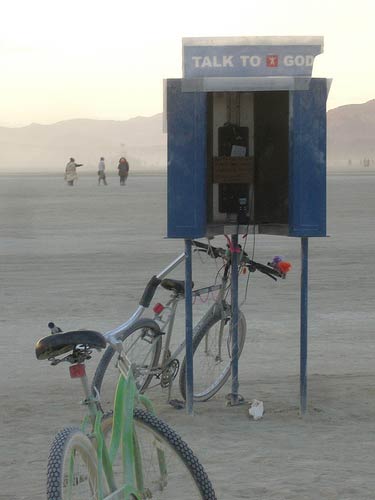Simplicity – The Ultimate Sophistication
By Jahnavi Dasi | Oct 25, 2008

I came home from a long trip this summer, to find that my old car was no more. Without mentioning names, a certain family member accidentally wrapped it around a telegraph pole, and it was promptly written off.
I wasn’t too disturbed however, as by the time I arrived back on English soil, a replacement had been bought. Same make, similar model – it seemed that not much had changed. That was, until I got inside. I immediately began to notice all the things that were wrong with it, from the broken seatbelt to the shaky clutch. I sighed inwardly every time I had to move the seats forward – this being my first three door car – and my biceps ached from turning the stiff steering wheel. As if it couldn’t get any worse, a few days later, our main family car broke down. Now, with only one small Corsa between a family of five, we were officially stuck.
A month slowly passed, and whilst at first we would complain to each other daily, about the incredible inconvenience of having to share and schedule car time, after a little while, we began to adapt. We soon found there were other ways of getting where we needed to go, sharing rides whenever we could; or walking, or cycling!
It’s easy to blow inconveniences out of proportion. In our everyday lives, we often become so reliant on our gadgets and home comforts, that it feels as though they are additional limbs. Any disturbance created in our use of them can give us almost physical discomfort. For many people the thought of even a day without their mobile phone or computer is preposterous.
And of course, what we have is never enough. I bought a shiny new laptop last year and excitedly unwrapped it, only to find that two weeks later, the manufacturers had brought out a thinner, even more stylish model, that made mine pale in comparison. Advertisers know how vulnerable we are, and are no fools when it comes to making us feel we always need to change and upgrade what we already have.
A popular Indian folk tale warns of what can happen when we become ruled by our insistent desires, telling of a simple man, living by a river, who only desires an extra cloth to wear, so that he doesn’t have to wash the same one every day and wait for it to dry. His desire is granted, but as a mouse starts to nibble on the new cloth, he quickly finds out that he again needs something – a cat! With the cat comes the need for more food, which requires more money, which requires a change of location, which creates more entanglements – and so on.
So how can we combat this? As devotees of Krishna, we learn that it is beneficial to lessen ones attachments to the material world, as its nature is temporary. However, anyone that’s ever tried to ignore a desire, including me, knows that it’s no walk in the park. Like an itch, it just won’t leave you alone unless you scratch it. Thankfully, there are several ways in which we can focus our minds, that offer an alternative to the desire driven culture that we live in.
The first, is to cultivate gratitude for everything that we already have. This doesn’t have to be a forced ‘starving children in Africa would be happy to have this’, but rather, simple recognition that we are in fact blessed every day. All that we eat and drink, the homes in which we take shelter, the vehicles we drive, all come from Lord Krishna, who kindly allows us to utilise them. Understanding this both helps us to see and appreciate Lord Krishna’s hand in our lives, as well as to not take his gifts for granted. In the case of my car, having to walk more and take public transport made me realise how fortunate I was to even have a car at all.
Our desire for things can never be satisfied, and recognising this can motivate us to try and live more simply. Rather than being subservient to the world that demands everything at lightning speed, from fast-food to friendship, we can greatly benefit from aligning our lives more with nature.
At the core of successful simple living, is the need for strong spiritual inspiration and practise, without which, we will never feel satisfied or truly complete. It is essential to make a space for this activity, such as chanting the Hare Krishna maha mantra, in our daily lives. This ‘higher taste’ is not a dry substitute for real pleasure. Rather, it is the real pleasure, that we can never find in any department store or restaurant, and is supreme in its ability to relieve us from the demands of the mind.
I found that indirectly, my car troubles aided this part of my life too. Being able to tolerate and maintain equilibrium is usually challenging at the best of times, but by being forced to live at a slightly slower pace, I found that the time I had in each day increased, and giving some time to Krishna each day has become less and less of a struggle. In the words of the great philosopher, Henry David Thoreau, “As you simplify your life, the laws of the universe will be simpler; solitude will not be solitude, poverty will not be poverty, nor weakness, weakness.” Oh, and not to mention the fact that cycling up and down hills does help the old waistline too”¦















